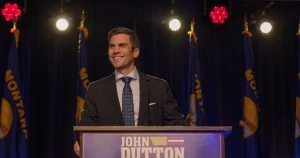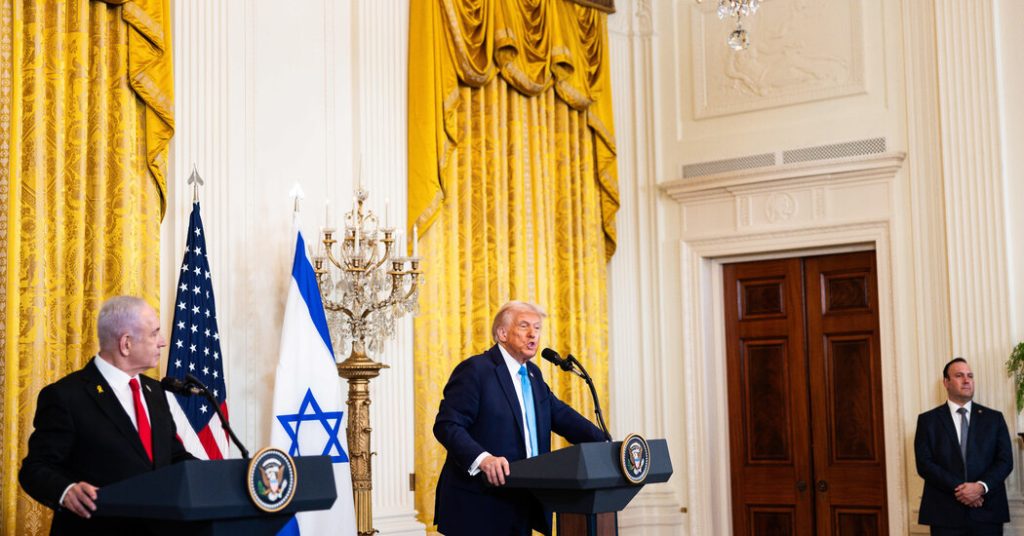Former President Donald Trump’s unexpected proposal to seize control of Gaza, displace its Palestinian population, and transform it into a Middle Eastern Riviera stunned observers and ignited a firestorm of controversy. The audacious idea, reminiscent of 19th-century imperialism, marked a dramatic escalation in Mr. Trump’s unconventional foreign policy pronouncements, previously including suggestions to purchase Greenland, annex Canada, and reclaim the Panama Canal. This latest proposition, however, dwarfed those prior pronouncements in its scale, complexity, and potential consequences. The proposal not only lacked any basis in international law but also presented immense logistical, financial, and security challenges, potentially requiring a substantial commitment of American troops and resources, a stark contrast to Mr. Trump’s earlier pledges to disengage from Middle Eastern entanglements.
The proposal’s evolution throughout the day underscored its seemingly improvisational nature. Initial briefings by presidential aides suggested a long-term rebuilding effort involving regional partners and temporary relocation of Palestinians. However, Mr. Trump’s pronouncements escalated rapidly, culminating in a declaration during a joint press conference with Israeli Prime Minister Benjamin Netanyahu that the United States would assume “long-term ownership” of Gaza, displacing its residents and transforming it into a prosperous destination for all. The absence of any concrete details, legal justification, or logistical planning further fueled the perception that the idea was more of a provocative thought experiment than a serious policy proposal.
The international community reacted with a mixture of disbelief and condemnation. Critics labeled the proposal as “ethnic cleansing” and questioned its feasibility, legality, and strategic rationale. Experts questioned Mr. Trump’s understanding of the complex geopolitical landscape and the potential consequences of such a drastic intervention. The plan raised concerns about the United States becoming an occupying power, displacing a population of two million, and igniting further conflict in the volatile region. Even supporters of Israel expressed reservations, questioning the wisdom and practicality of such a sweeping undertaking. The proposal’s contrast with established international norms and the United States’ traditional role in the Israeli-Palestinian conflict raised serious doubts about its viability and potential repercussions.
While some Israeli supporters viewed Mr. Trump’s proposal as a potential solution to the ongoing conflict with Hamas, others, including former Middle East negotiators and policy advisors, expressed grave concerns about its implications. They argued that the plan contradicted Mr. Trump’s own non-interventionist rhetoric and could undermine efforts to broker peace agreements in the region. Furthermore, the massive financial and logistical burdens associated with such an undertaking could dwarf previous foreign aid budgets and divert resources from other critical areas. The potential for increased military presence and involvement in the region also contradicted Mr. Trump’s earlier promises to reduce American commitments in the Middle East.
Mr. Trump’s rhetoric, framing the takeover of Gaza as a real estate deal, further heightened concerns about his understanding of the complex human and political dimensions of the conflict. His apparent disregard for international law and the rights of the Palestinian population sparked outrage and accusations of promoting ethnic cleansing. The seemingly casual manner in which he presented the idea, comparing it to developing a luxury resort, trivialized the plight of the displaced Palestinians and the potential for further violence and instability in the region.
The episode ultimately served as a stark reminder of the unpredictable nature of Mr. Trump’s foreign policy pronouncements and their potential to disrupt established norms and diplomatic efforts. While the Gaza takeover proposal was widely dismissed as unrealistic and legally unsound, it underscored the challenges posed by unconventional policy pronouncements and the importance of informed and nuanced approaches to complex international conflicts. The incident also highlighted the potential for such rhetoric to exacerbate tensions and undermine efforts to achieve lasting peace and stability.











